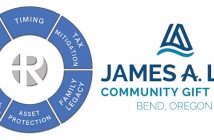If you’re planning to sell your goods or services online, you should offer your customers quick, safe, and user-friendly payment methods. You need to find a reliable payment service provider that works with businesses from your industry and the countries where you’re planning to sell your products. In this article, you’ll find a comprehensive step-by-step guide on how to set up your business to receive online payments.
Select the Optimal Payment Systems
When picking payment methods, you should focus on the following four factors:
- Which payment options fit your business best?
- Which options are most common in your market?
- What are the national preferences of the countries that you’re planning to cater to?
- What is the value of the transaction? (You need to study the rules that govern which information merchants need to provide depending on how much their clients spend).
You might want to consider accepting credit and debit cards, online bank transfers, prepaid cards, web wallets, cash-based e-vouchers, and other options. Each method that you offer to your clients should be straightforward and intuitive. Your customers should be able to carry out payments in a couple of seconds and a couple of clicks.
Choose a Reliable Payment Service Provider
Merchants can choose from three main types of payment services. To identify which one suits you best, you should analyze the specifics of your goods or services, the demands and the purchasing habits of your target audience as well as the laws and regulations of the territories where your businesses will operate.
Traditional acquiring implies that you’ll be able to accept credit and debit card payments through acquiring banks (also known as merchant banks). Such institutions often rely on the services of payment processors. These are third parties that carry out the payments processing for banks, guarantee payment settlement, and manage risk and fraud.
Alternative payment providers can offer innovative payment solutions. These might be, for instance, pre-paid vouchers or virtual cards based on cash that will enable your clients not to disclose their identities.
Online payment service providers often operate on an international or even global level. They are ready to accept and manage both traditional and alternative payment methods. Normally, they employ SaaS (software-as-a-service) models and offer single payment gateways to multiple payment methods for their merchant clients. The online payments pages of such providers are typically highly customizable.
The Benefits of Single Payment Service Providers
Merchants need payment service providers (PSP) to help them cope with the following tasks:
- Manage the information flow (such as transaction information)
- Provide businesses with payment gateways to one or more online payment systems for which they (PSPs) act as intermediaries
Not all providers are ready to operate cross-border. If you’re planning to sell your goods or services in several countries, make sure that your potential PSP supports all the currencies in which you want to accept payments.
Small merchants should benefit from using a single PSP if they operate across multiple countries with divergent national preferences. The PSPs have established relationships with most of the traditional and alternative online payment systems that are available in Europe. Besides, they have extensive expertise in national markets.
When choosing a PSP, make sure that it is registered both in its home country and the European Banking Authority. To verify the provider’s validity, you should look for its name in the national registries.
Integrated vs Hosted Payment Solutions
When setting up payment gateways, merchants can choose between integrated payment solutions and the ones hosted by their PSPs.
The former provide more flexibility and control over their payments pages. But merchants should be ready to manage security updates and compliance on their own. They need to have certain IT skills.
If you opt for a hosted payment solution, your PSP will take care of its security. The provider will charge you on a fee-per-transaction basis. It might be either a percentage of the value of the transaction volume or a flat charge per transaction. The law prohibits merchants from charging this transaction fee to their customers unless they make it explicit during the payment process.
Inform Your Clients
Before your customers send funds to you, they need to accept the rules of your payment agreement. When compiling this document, you should inform the clients about the following aspects of the purchase process.
- At the beginning of the ordering process, inform your customers about the selection of payment methods.
- Disclose the total cost of the item(s) they’re purchasing.
- Let your customers know about any extra fees that their payment might involve.
- Tell them they have a right to refuse to pay charges or other costs that were not properly mentioned before the order was placed.
- Explicitly ask for their consent to allow extra payment over and above the agreed price.
Some merchants believe that they can pre-tick boxes for charging extra services. But in fact, that would be illegal. Also, the law prohibits charging your customers more than what it costs to offer them a given means of payment. Last but not least, merchants can’t charge their clients for requesting basic information on their financial operations.
As soon as the client confirms the payment, you need to send them an email to prove that the transaction has been completed. The exact contents of this email will depend on the type of e-commerce payment and contract.
Merchants who use PSPs are obliged to refund their clients immediately for unauthorized transactions, billing, or processing errors.
Get to Know about Your Tax and VAT Obligations
Online merchants need to comply with fiscal and value-added tax (VAT) obligations. These rules and regulations might vary significantly depending on what exactly you sell, where and to whom. You need to obey the law of the state where VAT is due and you should check whether you should be paying excise duties.
Conclusion
Hopefully, this article came in handy, and now you have a better vision of how to receive payment online. These recommendations should be relevant for businesses from nearly any sphere.




